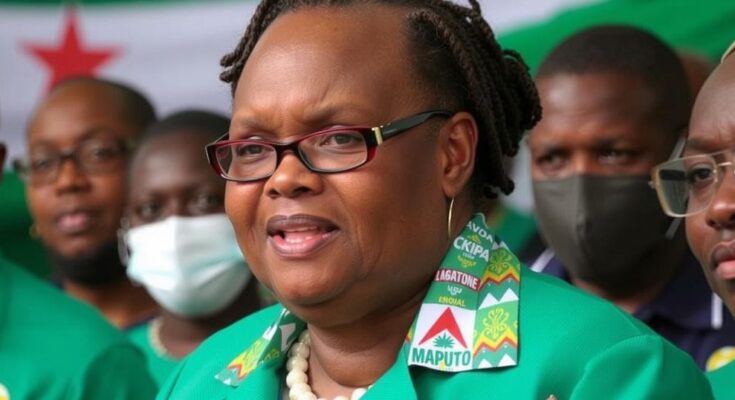Maputo faces rising tensions as residents await a court ruling on the disputed October presidential election. Venâncio Mondlane, the opposition leader who claims the election was rigged, has called for demonstrations and warns of potential unrest. The aftermath of the elections has seen significant violence, with over 110 deaths reported. The Constitutional Court is set to announce its ruling amid calls for national dialogue.
In Maputo, Mozambique, an atmosphere of tension pervades the city as the populace anticipates a critical court ruling regarding the disputed results of the presidential elections held in October. Following the announcement of results, which led to widespread protests marked by violence, Venâncio Mondlane, the runner-up in the election, has been rallying his supporters to publicly contest what he describes as a fraudulent election process. Mondlane has found refuge in exile, alleging the police have harassed him, especially after the tragic deaths of two of his aides in October.
Mondlane’s recent social media statements allude to the potential for a “new popular uprising” should the court not overturn the results. The typically bustling streets of Maputo have transformed into scenes of silence and sparse traffic, reflecting the ongoing unrest. Demonstrators have begun to obstruct roadways in anticipation of renewed protests, anticipating the Constitution Court’s announcement scheduled for 15:00 local time (13:00 GMT).
The election saw Frelimo’s Daniel Chapo declared the winner with 71% of the vote, while Mondlane, running as an independent, garnered 20%. Mondlane has been unequivocal in his stance, declaring to the BBC that he cannot accept the election outcome. The Electoral Commission has rejected claims of election manipulation despite international monitors flagging various issues with the electoral process, including potential tampering of vote counts.
Violent confrontations during the protests have resulted in over 110 reported fatalities. Many deaths are attributed to actions of security forces, although police commander Bernadino Rafael has suggested his officers were acting in self-defense. In a conciliatory note, Pope Francis urged dialogue and unity for the nation.
The political climate in Mozambique has been volatile, particularly surrounding the presidential elections. After nearly 50 years of governance by the ruling party, Frelimo, the recent elections have incited serious allegations of voter fraud and misconduct. Protests erupted soon after the election results were tallied, characterized by violence and significant loss of life. The repercussions of these protests highlight deep-seated grievances among the electorate, and the forthcoming court ruling may significantly impact the nation’s political landscape.
In conclusion, the current tensions in Mozambique stem from a deeply contested electoral process, marked by allegations of fraud and violent protests. The role of leaders like Venâncio Mondlane highlights the urgent call for reform and accountability in an election process that many observers have deemed flawed. The upcoming court ruling will be pivotal in determining the direction of political stability in Mozambique.
Original Source: www.bbc.com




